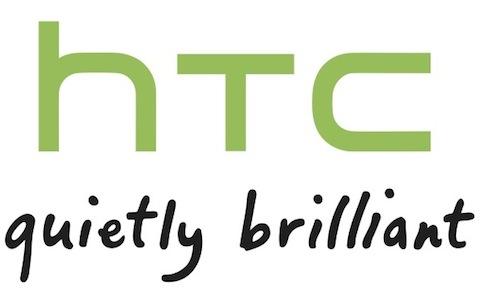
This year, HTC is going to focus on quality over quantity. From what we've heard over the last few weeks from the company, they are genuinely trying to turn over a new leaf within the mobile industry. They don't want it to be just about releasing a vast number of phones, occupying every imaginable space possible for the consumer. This year, HTC wants to make sure that when you buy a phone, you're happy with the quality you're getting, no matter what niche market you buy that phone in.
There is no denying that HTC launched a lot of phones last year, and the year before that. Ever since the company put a focus on the Android mobile operating they've been quick to embellish its nature. More phones means more of an opportunity to make HTC money. Of course, they kept that philosophy when they started making Windows Phone-based devices as well, so we can't (and won't) put all the blame on Google's OS.
If you didn't keep track last year, and no one is blaming you if you didn't, HTC released 28 devices here in the United States alone. 28. That is 28 different devices the company released for all the major wireless carriers, and the regional carriers. We've got low-end, mid-range, and top-tier devices filling the roster. We've got devices that haven't been upgraded, have been upgraded, and have been promised to be upgraded at some unknown time in the future. Basically, in the year 2011, HTC did everything they could to fill just about every nook and cranny within the mobile market. They succeeded in that regard.
Thankfully, they're looking to change things up this year. But with 28 different devices launched last year, it wouldn't be hard to imagine that HTC probably shouldn't have to try too hard to release less than 28 phones in 2012. As it stands right now, as of this moment, HTC has only officially one upcoming device for the United States, and that is the Titan II. But we know there are more coming. With Mobile World Congress starting in just two days, and with HTC's announcements set to debut tomorrow, HTC is on the brink of announcing plenty of new devices.
Three, if rumors are correct. At the bottom of the rung, we've got the HTC One V, which was previously known as the HTC Primo, if the leaks hold true. Then we've got the HTC One S, which has reportedly been known as the HTC Ville in previous leaks. And finally the high-end HTC One X, or what's been known as the HTC Edge. These three devices are reportedly the beginning of HTC's new design philosophy, focusing on quality more than anything else. So that means, at the end of the second month in 2012, HTC will have four devices already announced (and there are reports suggesting that these three new devices will be coming to the US, so we're going off of that).
So let's play Devil's advocate for a little while. Separated to make it easier, we've got two phones each month, or four phones in two months. If HTC were to keep up with this particular trend, even if they spaced out the announcements to one, two, or three phones a month with breaks in between, that would mean HTC is on track to release 24 phones this year. Dealing with technicalities, that is indeed four phones fewer than they released last year, which means that HTC, if they do release 24 phones this year, wasn't lying about their intentions.
But to be frank, I hope HTC doesn't have this in mind. With their focus on Android and Windows Phone, HTC actually has the perfect set up right now. They could introduce two more Windows Phone devices this year, filling up the mid- and low-range markets, with the Titan II filling in the high-end spectrum. These phones release in the first half of 2012, and then they announce successors to those devices in the second half of the year. That means HTC releases six Windows Phone handsets this year. More to the point, that would mean with the three Android phones they've got rumored to launch in the first half of 2012 already close to being announced, HTC could launch the successors to those devices in the second half of this year, and have 6 Android devices launching in 2012. That would equal 12 total phones all year, here in the United States, and I don't see anything wrong with that.
Because then HTC only has to focus on updating three devices later this year to whatever version of Android is out and about. Three. And then when the three new devices launch at the other end of the year, they can launch them with the new Android operating system. Obviously HTC doesn't need to worry about Windows Phone updates, so that's a moot point.
This seems like a plan that could work for HTC, and one that would almost guarantee (as much as can be, anyway) that HTC-branded devices purchased this year are safely in line for software updates. That's a win-win for everyone, I think.
Will it happen? We'll have to wait and see.